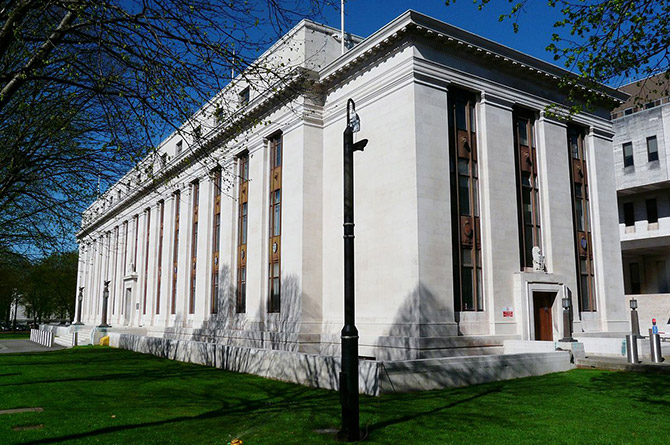Support quality, independent, local journalism…that matters
From just £1 a month you can help fund our work – and use our website without adverts. Become a member today

The Welsh Government made a £13m “special payment” to settle claims over road contracts and lost more than £2m on defunct technology, according to scrutiny of annual accounts.
Welsh ministers shelled out £13.1m, excluding VAT, after contractual claims for additional money for three road projects amid spiralling costs due to high inflation.
Andrew Goodall, the Welsh Government’s permanent secretary, said in a letter that his officials sought to settle all claims with the contractor in the interests of value for money.
Pressed by the Senedd’s public accounts committee about the consequences of not settling, Dr Goodall raised the risk of delays to roadworks and the loss of European funding.
He wrote: “Not settling all claims would have left the Welsh Government open to the risk of unsettled claims being leveraged by the contractor at a later date.”
‘No guarantee’
Wales’ most senior civil servant added: “Whilst there’s no guarantee the contractor would have commenced formal dispute proceedings for amounts they considered were due, it was deemed that there was a real chance of them doing so.”
He said such push back was not unique to the Welsh Government, with other public bodies also grappling with the reality of contractors no longer being willing to take on certain risks.
In his letter to the public accounts committee, the ex-NHS Wales chief confirmed the payment was discretionary and made as a result of the government’s policy position.
Politicians on the committee called for more information in their scrutiny of the Welsh Government’s 2023-24 accounts which provided few details of the “special payment”.
Members questioned how the £13.1m compares to the overall value of the road projects and whether it represents a negotiated settlement below the total value of the contractor’s claims.
‘Fruitless payment’
The committee also called for clarity after the accounts revealed a £2.27m loss to the public purse from spending on “defunct” equipment for a green social housing scheme.
As part of its “Optimised RetroFit Programme”, the government made a “fruitless payment” for intelligent energy systems (IES) only to discover the devices could not be upgraded.
Explaining the loss, Dr Goodall pointed to a lack of clarity in reporting and escalation which meant the Welsh Government was unaware the units were useless until it was too late.
He wrote: “A detailed and thorough lessons learnt process has been completed, in which all parties have considered and reflected upon their role and responsibilities….
“The initial IES devices represented one of the first tranches of monitoring units of this kind, so were exposed to the inherent risks associated with new technologies.”
‘Unsatisfactory’
In his foreword to the report, chair Mark Isherwood outlined serious concerns about the Welsh Government’s “unsatisfactory” oversight of 48 arm’s-length bodies.

Ministers have paused a programme of tailored reviews, with only two completed – for the National Library of Wales in 2020 and Amgueddfa Cymru (Museum Wales) in 2023.
The public accounts committee has criticised a move to an alternative lighter-touch, self-assessment model which has taken more than six years to implement.
The report, which makes 18 recommendations, also expressed concerns about a data breach as the Welsh Government rolled out a new HR system called Pobl.
Dom Houlihan, director of people, told the committee: “Some line managers were able to view data they shouldn’t have been able to,” prompting an immediate security review.
‘Stalled investment’
The scrutiny report, which was published on Monday, called for an update on the Welsh Government’s £14m attempt to attract sports carmaker TVR to Wales.
Ministers spent £4.75m buying a factory in Ebbw Vale in 2021, £7.6m on refurbishment, £2m on a five-year loan for TVR and £500,000 on shares – only for the venture to fall through.
The committee said: “We are concerned the property remains vacant and the investment as it currently stands is not generating any income nor representing value for money.”
Senedd members also expressed concerns about the damning “no assurance” findings of internal audits of the Welsh Government’s framework for managing major projects.
Their 60-page report similarly raised alarm bells about a leaked staff survey which painted a picture of a culture department in “chaos”, with “no sense of longer-term strategic planning”.
Support quality, independent, local journalism…that matters
From just £1 a month you can help fund our work – and use our website without adverts.
Become a member today
